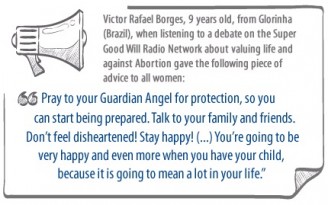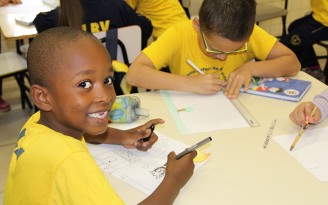
Citizenship: boys and girls from deprived communities in Rio de Janeiro learn about their rights
Jéssica Botelho
Tuesday | December 09, 2014 | 5:18 PM | Last update: September 22, 2016, 4:07 PM (Brasilia time)
Anyone who follows the news, even if they do so in an absentminded way, comes face to face with facts that shock and violate the rights of children and young people worldwide. Violence and discrimination of all types, the exploitation of child labor, and lack of access to public services are just some of the countless examples of attitudes that harm the dignity of these future citizens.
Despite human rights being assured under Brazil’s Constitution, the country’s population still faces serious challenges as far as this subject is concerned, according to a report by the international non-governmental organization Human Rights Watch (HRW).
EDUCATION: THE KEY TO CITIZENSHIP AT ALL AGES
The challenging Brazilian scenario, however, does not inhibit the prospects for change. “This must improve. All children must be respected and educated in a civilized way, because all of them have the right to be happy and to receive a decent education.” This statement illustrates what young Gabriel Lima, 14, who lives in a community in situation of social vulnerability in Rio de Janeiro, has learned. He, along with his classmates, gets the opportunity to discuss this and other issues of public interest in the Legion of Good Will (LBV).
Every year the Organization organizes actions under the theme “human rights” in all its schools, the idea being to form the critical and citizenship awareness of young people and children. The LBV’s Educational Center in the above-mentioned city carried out a series of activities in 2014 with 7th and 8th grade students about the Statute of the Child and Adolescent (ECA), which completed 24 years since it was passed in July. As teacher Glória Arruda, who conducted this work in her philosophy class, explains: “the activities included research and the preparation of posters and videos on the fundamental rights of the citizen, violations and socio-educational measures within the context of the Statute of the Child and Adolescent.”
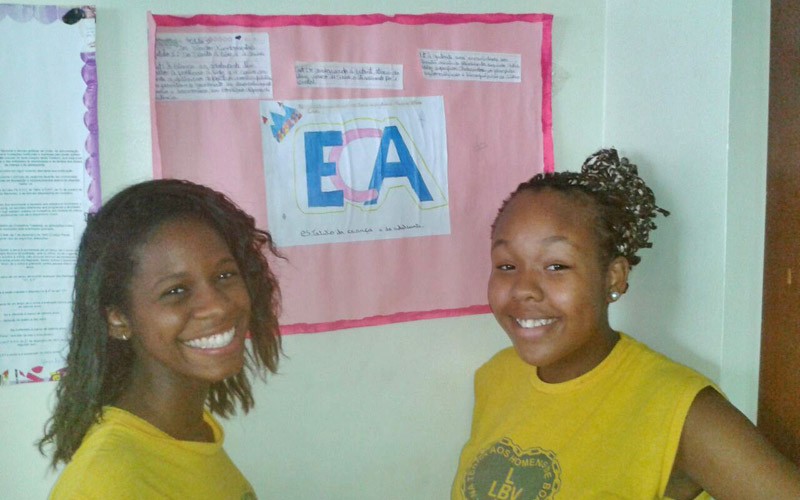
With regard to the statute, young Juan Lucas, 13, explains that: “It fights for the rights of children and adolescents all over Brazil. In addition to protecting them against child labor, it also reintegrates them into society.” This federal law was introduced in 1990 and is directed at children under 12 and young people aged 12 to 18. It is considered a milestone in the work towards fully protecting boys and girls. The statute seeks to serve as an instrument for social development and for a change of mentality, at the same time that it promotes a better reality for young people.
Nevertheless, twenty four years after its enactment the statute is still not fully upheld in the country. For this to happen, its fundamentals need to be understood and truly applied in each municipality in Brazil. Ms. Arruda believes that the school has a fundamental role to play in encouraging students to know the law. The activity that was undertaken aimed “to make students aware of their rights, but also their duties,” adds the educator.
“Respecting colleagues and the teacher, not committing acts of vandalism, obeying parents” are just some of the duties that Lucca Santos, 12, emphasized. He also summed up what else he learned with the activity: “Both children and adolescents have rights that must, by law, be respected. In other words, the right to education, respect, sports, and leisure, because we’re all human beings. So, everybody must be treated in the same way and have equal rights, like the adults.”
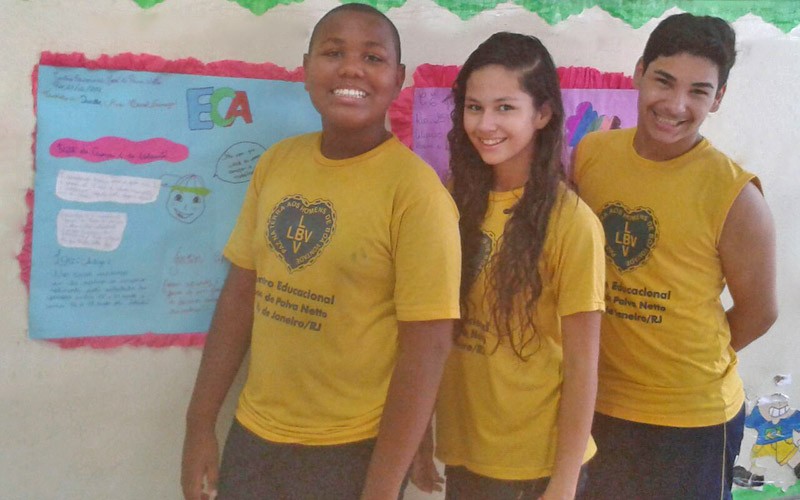
Students today know that if their rights are violated on a day-to-day basis they can demand action from the government. This is what student Ana Carolina Saraiva, 13, says, adding that she did not know this before. “Today I can show the world that there’s a set of laws that protects me. For example, if today I was obliged to work, or if I go to the hospital and don’t receive treatment, or if I don’t have a school in which to study, I know that I can have recourse to the ECA.”
For Juan Lucas, the activity was important “to know what’s wrong [violation] and inhuman. It was essential to know my rights and other children should know theirs too.”
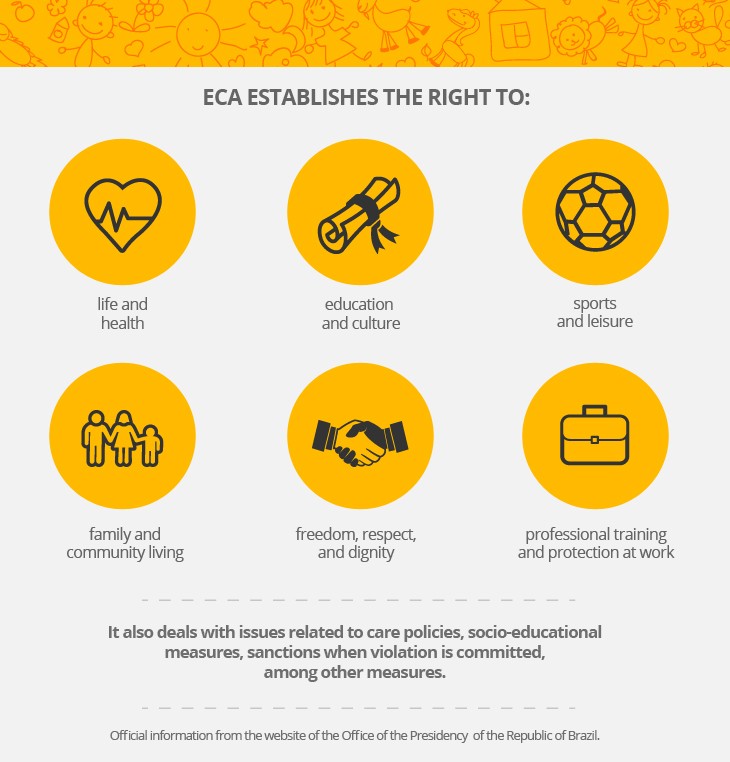
PROTECTING THEM FROM EARLY ON
In all its schools and socio-educational and socio-assistance centers, the Legion of Good Will has, for decades, dedicated special attention to those children and adolescents living in social risk situation. To do so, it develops a wide range of campaigns and projects with the unique approach of the LBV’s Pedagogy of Affection and the Ecumenical Citizen Pedagogy. This educational method, which was created by the President of the LBV José de Paiva Netto, allies intellectual development—in other words, the compulsory subjects in the school syllabus— to the awakening of ethical and universal values of Ecumenical Spirituality*. Learn more about the LBV’s teaching proposal.
This work aims to continuously improve the living conditions of thousands of Brazilian families. To help the LBV of Brazil to carry on with this work and expand it, you can make your donation online at www.legionofgoodwill.org. It is fast and safe! For further information, write to english@boavontade.com.
____________________________
*Ecumenical Spirituality — This banner of the Legion of Good Will is present in all its socio-educational actions, because it is understood as “the cradle of the most generous values that are born of the Soul; the dwelling of the emotions and of the reasoning enlightened by intuition; the atmosphere that embraces everything that transcends the ordinary field of matter and comes from the elevated human sensitivity, such as Truth, Mercy, Morals, Ethics, Honesty, Generosity, and Brotherly Love.” Extract taken from the best-seller by writer and LBV president Paiva Netto ‘É Urgent Reeducar!’ [It is Urgent to Re-educate].

